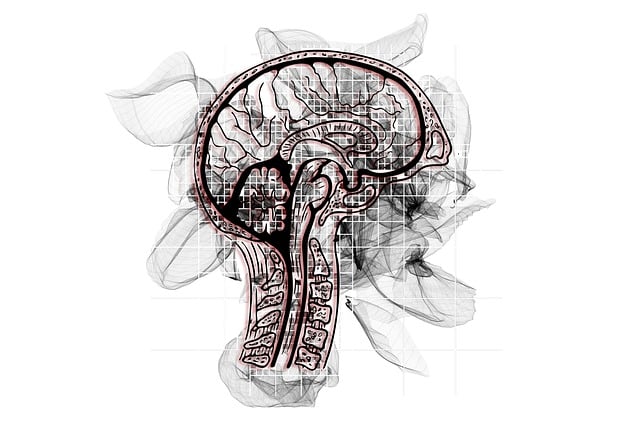
Nourishing the Mind: The Impact of Diet and Nutrients, Especially Oily Fish, on Brain Health in the United States
January 24 , 2023 Imphal By Banti Phurailatpam:
In the bustling landscape of modern life in the United States, where demands on mental acuity are constant, the role of nutrition in brain health has gained prominence. As we delve into the intricate connection between the brain, diet, and essential nutrients—with a special focus on the benefits of oily fish—it becomes evident that what we consume plays a pivotal role in nurturing cognitive well-being.
The Brain’s Symphony: Understanding the Complexity
The human brain, a marvel of biological engineering, orchestrates a symphony of neural activities that govern every aspect of our lives. From cognition and memory to emotions and decision-making, the brain’s intricate network relies on a delicate balance of nutrients to function optimally. Diet emerges as a critical factor in influencing this balance.
Nutritional Alchemy: The Impact of Diet on Brain Function
A well-balanced diet is akin to alchemy for the brain, providing the essential building blocks required for neural communication and maintenance. Nutrients such as omega-3 fatty acids, antioxidants, vitamins, and minerals contribute to synaptic plasticity, neuroprotection, and the overall resilience of the brain.
Oily Fish Unveiled: A Nutrient-Rich Superfood for the Brain
Oily fish, including salmon, mackerel, and sardines, takes center stage in the nutritional narrative for brain health. Rich in omega-3 fatty acids, particularly eicosapentaenoic acid (EPA) and docosahexaenoic acid (DHA), oily fish offers a potent cocktail of nutrients known for their cognitive benefits. These fatty acids are integral to the structure and function of brain cell membranes, influencing neurotransmission and inflammation.
Omega-3 Fatty Acids: Guardians of Cognitive Vitality
The United States, a nation known for its diverse culinary landscape, has witnessed a growing appreciation for the cognitive benefits of omega-3 fatty acids. Studies suggest that regular consumption of oily fish, or omega-3 supplements where dietary intake is insufficient, may contribute to improved cognitive function, reduced risk of cognitive decline, and even a lower incidence of mood disorders.
Neurogenesis and Oily Fish: Fostering Brain Cell Renewal
The concept of neurogenesis, the generation of new neurons in the brain, has added a new dimension to our understanding of brain health. Oily fish, with its rich reserve of omega-3 fatty acids, has been associated with promoting neurogenesis, potentially enhancing learning and memory capabilities. The implications for cognitive longevity are profound, offering a preventive measure against age-related cognitive decline.
Antioxidants: Defenders Against Oxidative Stress
In the dynamic landscape of the brain, oxidative stress can wreak havoc on cellular structures. Antioxidants, abundant in a diet rich in fruits, vegetables, and, notably, oily fish, act as defenders against oxidative damage. These compounds may play a role in protecting the brain from the effects of aging and neurodegenerative diseases.
Vitamins and Minerals: Micronutrients in Cognitive Support
Beyond the spotlight on omega-3 fatty acids, oily fish contributes a spectrum of vitamins and minerals crucial for cognitive support. Vitamin D, iodine, selenium, and B-vitamins, among others, play integral roles in maintaining neurological function. Ensuring an adequate intake of these micronutrients is a proactive step towards nurturing brain health in the United States.
Cultural Shifts: Incorporating Oily Fish into American Diets
As dietary patterns evolve, there is a notable shift in American culinary preferences towards embracing oily fish. Restaurants and supermarkets alike witness a surge in demand for salmon, tuna, and other omega-3-rich options. This cultural shift reflects an increasing awareness of the brain-health benefits associated with including oily fish in one’s diet.
Challenges and Considerations: Navigating Dietary Choices
While the benefits of oily fish for brain health are substantial, there are considerations to navigate. Concerns about overfishing, environmental sustainability, and potential contaminants in fish underscore the importance of making informed choices. In the United States, initiatives promoting sustainable fishing practices and consumer awareness contribute to a conscientious approach to seafood consumption.
Public Health Implications: A Dietary Approach to Cognitive Resilience
The public health implications of incorporating oily fish into the American diet are significant. As the nation grapples with the increasing prevalence of age-related cognitive disorders, adopting dietary strategies that prioritize brain health emerges as a promising avenue for preventive care. Public health campaigns promoting the inclusion of omega-3-rich foods align with a proactive vision for cognitive resilience.
The Future of Brain-Boosting Nutrition: Research and Innovations
In the scientific realm, ongoing research continues to unravel the intricate interplay between diet, nutrients, and brain health. Innovations in nutritional science, personalized nutrition, and the development of omega-3 supplements contribute to a landscape where individuals can tailor their dietary choices to support cognitive vitality based on evolving research.
Conclusion: Nurturing Cognitive Wellness Through Informed Choices
As the United States embraces a holistic approach to health and wellness, the connection between brain health, diet, and essential nutrients, particularly those found in oily fish, takes center stage. Informed choices, guided by scientific understanding and a commitment to sustainable practices, empower individuals to play an active role in nurturing cognitive wellness. In the pursuit of a vibrant and resilient mind, the journey begins on the plate, with each nutrient-rich bite contributing to the symphony of cognitive vitality.
Nourishing the Mind: The Impact of Diet and Nutrients, Especially Oily Fish, on Brain Health in the United States Read More









